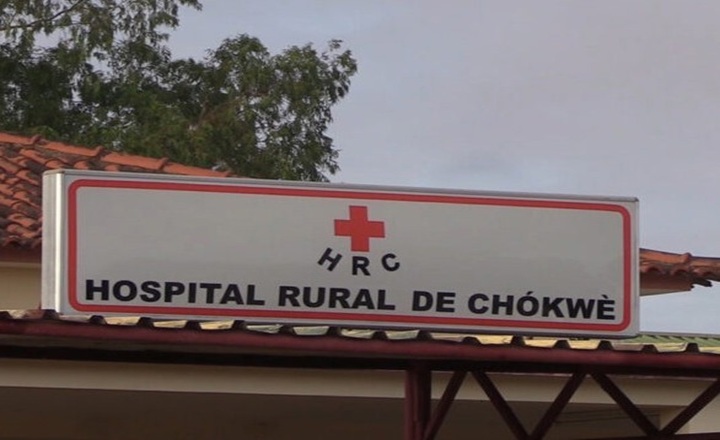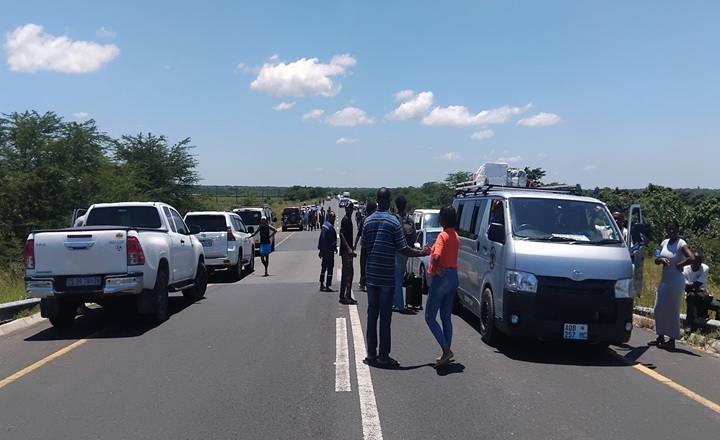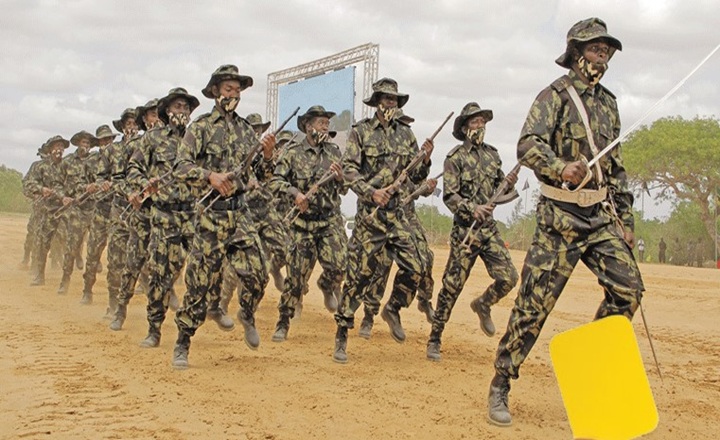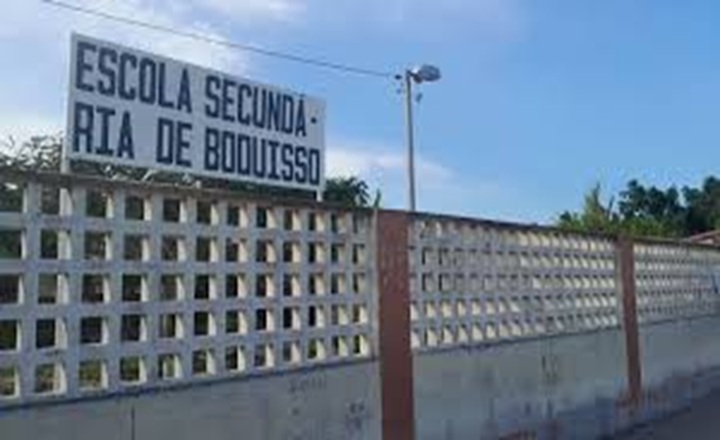
I think we have to take a step back not forward,” says Professor Luca Bussotti

In yet another academic analysis of the European Union (EU) Report on the last elections held on October 9, 2024 in Mozambique, which were marked by several irregularities, and as a logical consequence brought to light the demonstrations and popular revolts, associated with deaths in prisons and homes, to better analyze and have a good understanding of the aforementioned report in yet another program on social media, Professor Lucas Bussotti, in coordination with Professor Laura Nhaueleque, an expert in African Policies, said the following. According to the professor, he considers this report to be interesting, probably for the first time the EU has pointed out the various irregularities in such a clear way regarding electoral processes in Mozambique. It is true that even in 2023 in the local elections a report was produced, including in the latter which often refers to the recommendations that were given in the report relating to those of 2023 that were not accepted, but it seems to me that the content of this report is a little different, let’s say more incisive with regard to the flaws in the entire Mozambican electoral process that took place in October 2024. The previous reports except for 2023 were superficial because they concluded with a more or less fixed formula that “there were irregularities, but the electoral process did not suffer so many anomalies capable of altering the final result”. This was the content of the EU reports but other subjects that carried out the electoral observation except for some Opposition Parties did not recognize the results.
This depends on the progressive consideration that international institutions have towards Mozambique, in particular towards the government of Mozambique, Frelimo. In other words, since the beginning of the 1990s, the great bet of the international community, particularly the Western community, has been to place trust in Frelimo at the forefront of the nation’s destiny, and therefore a real bet of trust was made towards Frelimo. Renamo was never really considered a political party capable of governing the country, even in the 1999 elections, which were clearly fraudulent and probably won by Afonso Dhlakama. The international community, including the EU and others, did not pay much attention to this lack of transparency. In other words, the important thing was for the country to move forward, regardless of the transparency of the election results. Today we have a subject called the People who at that time were more passive than they are today. At that time or in the first decade of the 2000s, the variable was not a relevant variable, that is, everything was more or less within the dynamics of the two largest parties. When the MDM presented itself, it had enormous difficulties and after some time it was eliminated due to a combination of interests between Frelimo and Renamo. Today the situation is completely different because we have a new actor who is being personified, identified with Venâncio Mondlane. The situation is completely different and the type of monitoring of Mozambican civil society was different. Several subjects that we do not need to mention carried out very thorough monitoring through videos, through online results, through public consultation. Therefore, it clearly created difficulties within the old system in which it was fundamentally Frelimo and Renamo that managed the electoral process. Frelimo was clearly much more than Renamo, but Renamo also played a role in the system, which was broken. Hence, we have this report from the European Union, which is much clearer, different from previous reports.
The new actor “People” certainly brought changes, because it is not an undefined entity, that is, the people are part of, for example, a series of civil society and political organizations, etc., which carried out very thorough monitoring, denounced abuses and therefore this EU report also looks at these other reports and complaints that were made by civil society together with some opposition parties that could not be ignored. What this report brings in terms of partial or total innovations, the professor believes that in general it highlights the absolute lack of transparency in this electoral process, which will be a serious problem above all on the EU side, because this report was prepared by the EU electoral mission, the first people to have access to it are precisely the representatives of the European people, together with the European Parliament, and the European people will question their representatives about the legitimacy of this current government that comes out of elections that the EU itself declared as non-transparent. Now, it is true in relation to the EU’s own report that says that “it is not up to us to determine whether the institutions will recognize the Mozambican government or not because it is a political task, whereas this exercise is technical”, but the European institutions will have to question themselves about the legitimacy of the current Mozambican government, so much so that the EU, if I am not mistaken, not for the first time but since the beginning of the crisis, has proposed itself as a forceful mediator in this crisis.
Let’s say that no phase of the electoral process was transparent, starting with the electoral laws. It is considered that the electoral law was rushed because it was made at the last minute, just a few months before the elections. Therefore, this caused great legal uncertainty. Within this legal uncertainty, the political force that holds power and controls all institutions, including those of the electoral justice system, will be able to manipulate and manipulate the entire electoral process more easily. This was the first element, and within this element, it is important to highlight that the principle of prior challenge was abolished, but this principle was used many times to not accept the 305 complaints of electoral irregularities. A principle that had already been extinguished by law was used. Therefore, we are in an evident legal contradiction. The report also speaks of a dubious census “with a notable lack of confidence in the reliability of the electoral registers”. The National Statistics Institute (INE) projected a growth in the population of voting age across the country of 17%, but the electoral census points to a growth of 30% on what basis? Throughout the process, EU observers reported cases of political harassment and intimidation by the ruling party. In some cases, EU election observers themselves were forced to leave the polling stations when the votes were being counted. This is a process that demonstrates an absolute lack of transparency. On the other hand, news coverage by other media outlets was clearly in favor of Frelimo, according to the report. Use of public assets by the ruling party throughout the election campaign, in other words, this practice is against the law. The Constitutional Council (CC) should detail the results, therefore, apart from all these serious failures, we had a CC that in fact validated the results of the National Elections Commission (CNE) with small changes, although it is written in the CC’s own report that the CNE acted badly and that a reform will be needed in order to professionalize the CNE itself, therefore the CC gave the CNE a patent of incompetence but validated its data.
Now, clearly, the whole question that Mozambicans are asking is how it was possible to validate the election results. If you will allow me, I will reiterate my position that I have always held, that these elections should be annulled and repeated. However, here we are getting into a very political issue and we have to see who were the actors who did not want to do so. The first actor was Frelimo. The ones who insisted on annulling the elections were MDM and Renamo, while Podemos did not. It never agreed with annulling the elections, so we can draw all possible conclusions. But probably if there had been uniform pressure from the opposition to annul the elections, well, perhaps the Mozambican government might have thought twice. However, with the opposition clearly divided on a central point in Mozambican political life, of course the government said that the largest opposition party also does not agree with annulment, so we will validate them. The consequence was that the people represented by Venâncio Mondlane did not accept it, which is why we are in this situation today. I do not know how we will be able to get around it. I don’t really like giving recipes, but for me it’s not a step forward but rather a step back that should be taken, and now I’ll explain: We have several negotiations that are taking place between President Daniel Chapo and opposition parties. Venâncio Mondlane has always been left out of these negotiations, and this invalidates this process a priori, excluding the main political actor in Mozambique. The negotiations should have taken place before the events.
How will the talks with Frelimo be carried out, with the president who was elected as he was, with a majority in parliament, and with a Frelimo that continues to control all the institutions. According to the report, it omits the political part that could not be written there, but we have to highlight that in Political Science there is a concept called mutual tolerance or mutual recognition between the parties. What does that mean? Within democratic institutions, it is necessary for the competing parties to recognize each other and the victory of the other party. The big problem with Mozambican democracy is that Frelimo does not have this willingness. Frelimo will never accept the victory of a political opponent and will never be able to relinquish power, at least this is Frelimo’s culture at the moment. Therefore, the report does not mention this, but as the English-speaking people would say, the deep factors of the crisis in Mozambican democracy are: we hold elections, but the party that has always been in power is not willing to recognize the victory of a different political actor. We can carry out any type of institutional or constitutional reform, etc. If this basis continues, we will always have contradictions, including convulsions of social conflicts. There is no way out at this point. The only way out, I know that I am saying blasphemy to many, would be for this government to be able to make basic reforms, including those recommended by the European Union, electoral justice, and then vote again in a year’s time, because the biggest problem in Mozambique at the moment, apart from the social and economic problems, is the problem with electoral transparency. So that is why I was saying that I think we need to take a step back, not forward. We need to do some serious work, perhaps with the mediation of the EU, with elections scheduled for one or two years after ensuring the transparency of the electoral process. I frankly see no other way out.
It is important to note that the international scenarios until 2015 were favorable to Frelimo. Now, starting in 2016, with the hidden debts, the scenario began to change. In 2017, with the insurgency in Cabo Delgado, the international and domestic scenarios also worsened. Today, we have Rwanda, Mozambique’s main ally, which is having serious problems with SADC because of the Congo issue. We have the American government that suspended USAID for at least three months during the Trump administration. USAID is Mozambique’s largest donor, which is the second recipient of American aid after Nigeria, mainly in the area of health. Therefore, this is also a very unfavorable international situation for Frelimo. Finally, we have this report from the European Union, which also did not have a positive impact on the Frelimo party. I think that the international situation needs to be carefully considered and analyzed, because a government that was born with these weaknesses, etc., and in an unfavorable international context, I strongly suspect that this government will be able to move forward in a peaceful and orderly manner. the management of the country over the next five years.
Outras noticias

Society
19-year-old woman arrested for kidnapping newborns at Chókwe Rural Hospital
2026-01-08

Society
Tension in Salamanga: Conflict between the Community and Rangers of the Maputo Reserve
2026-01-08

policy
YELLOW CARD NO. 1 OF THE YEAR: BETWEEN PROMISES, POPULISM AND THE URGENCY OF NATIONAL PRIORITIES
2026-01-08

policy
YELLOW CARD FOR THE FIRST PRESIDENTIAL REPORT: NARRATIVE ARROGANCE, SYSTEMIC CONTINUITY, AND THE WASTE OF A FIRST YEAR OF HOPE
2025-12-25

Society
Intaka-Boquisso road floods after inauguration, leaving residents outraged
2025-12-25
Copyright Jornal Preto e Branco All rights reserved . 2025